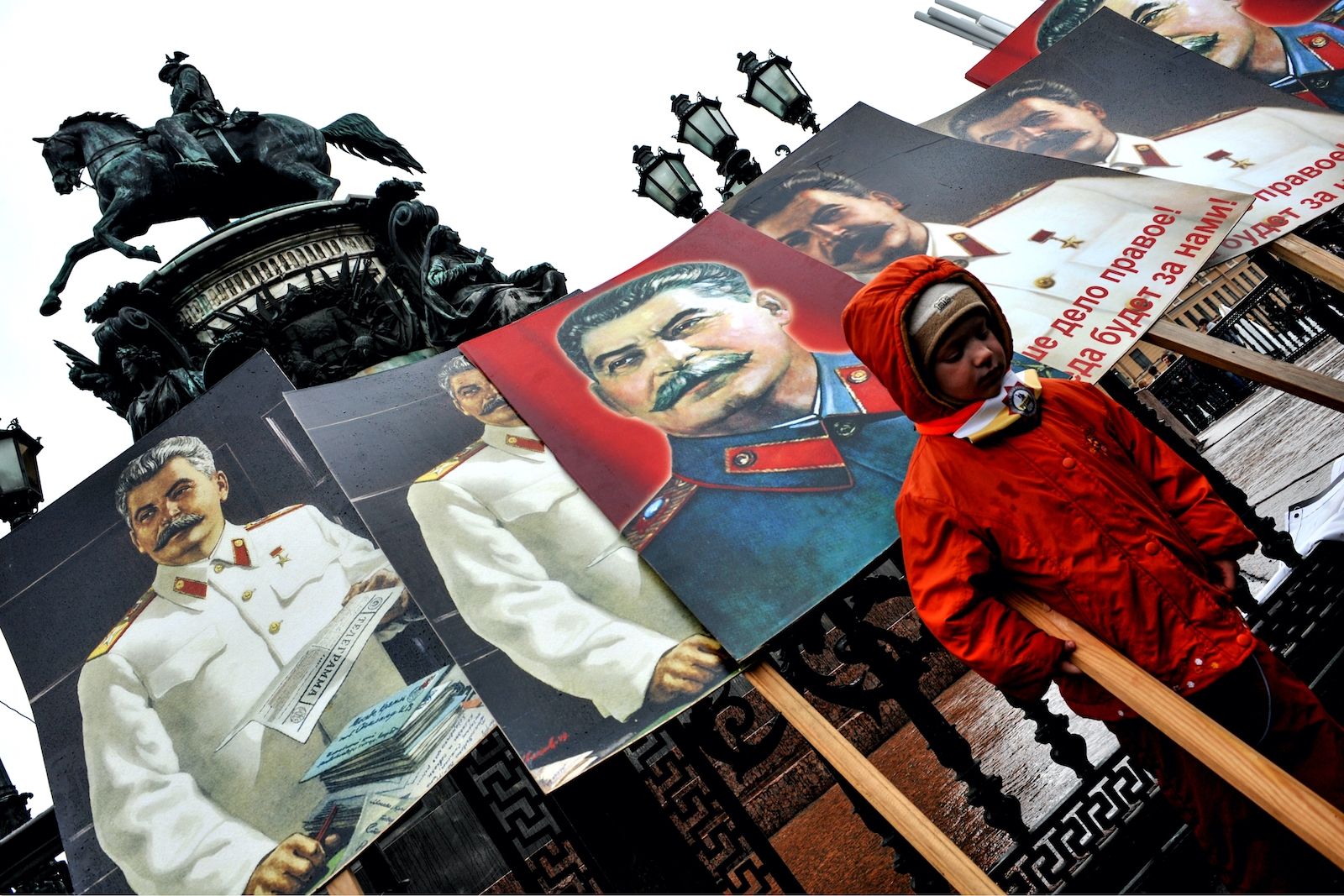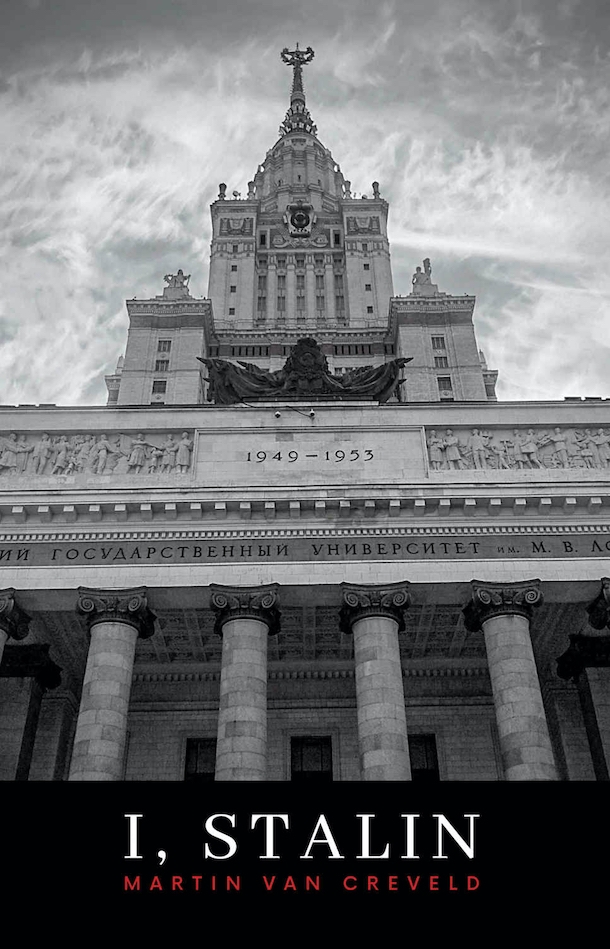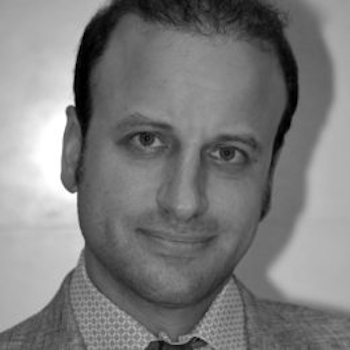
Books
Sympathy for the Devil: Stalin in his Own Words
Historical writing is a creative endeavor. The historian must embrace multiple points of view, and challenge the reader to rethink their preconceptions to better understand the past.
From Thucydides’ creative license with the text of Pericles’ funeral oration onward, truly great historians have embraced this creative process, putting words into their subjects’ mouths to bring to life important viewpoints that meaningfully contrast with their own. It matters not that Pericles may not have made those exact arguments, what matters is that Thucydides helps us both to understand Athenian decisionmaker psychology and to imagine ourselves participating in ancient democracy.
In fact, great historical innovators from Polybius to Ibn Khaldun to Toynbee, Braudel, and Schlesinger all put the human and creative dimensions forefront in history writing and challenge the reader to think about complex problems from different points of view. Martin van Creveld is one of today’s leading military historians, cultural critics, and iconoclasts. Whatever your personal politics, his intellectual and reputational courage to challenge received wisdom makes him required reading. His views cannot be reduced to any dualistic Left/Right political spectrum. It remains a great surprise to me that his works are not more widely read than conventional “big idea” historians like Jared Diamond or Niall Ferguson. Possibly it is because people don’t like having their intellectual foundations truly challenged these days.
In his latest work, I, Stalin, Creveld asks us to have sympathy for the devil. Thucydides writes Pericles’ ardent defense of popular democracy regardless of his own more elitist stance and belief that popular democracy was a dangerous form of government. By all accounts, Creveld is a classical Liberal, a believer in private property, and a defender of core Western values, especially democracy. Given his personal views, Creveld challenges us as readers not to convert to Stalinism but rather to see the logical coherence of Stalin’s worldview and inter alia of Soviet Communism as a whole. This is a profound deviation from how Stalin and Soviet Communism are typically portrayed in the West as brutal, paranoid, authoritarian, and corrupt. Such banal approaches provide all heat and no light. Just as with Creveld’s previous critiques of received wisdom about feminism or the importance of warrior culture to functioning societies, I doubt his latest flash of genius will win him any new friends in the mainstream media or the ivory tower. Not that Creveld holds those bastions of the establishment or their opinions of Stalin, Betty Freidan, or himself in particularly high regard.
I, Stalin is a light, but highly topical read, especially to counteract those ever-present pundits who assert that Vladimir Putin is trying to be a 21st century Stalin by his decision to invade Ukraine. The book shows quite clearly that Putin doesn’t have one iota of Stalin’s personal courage or ideological conviction. Putin may boast about fighting Nazis, but Stalin was arguably the single most important historic figure in defeating Nazism. In fact, Creveld exposes how Putin’s desire to frame himself as Stalin is just as ridiculous as Boris Johnson’s attempt to cast himself as Churchill.

I, Stalin is not a polemic asking you to personally identify with Stalin or an attempt to whitewash his many atrocities. The book is Creveld’s playful return to the genre of pseudo-autobiography that he used in Hitler in Hell. This time, Stalin issues his unremorseful apologia from the Pearly Gates. Despite employing many of Creveld’s favorite expressions and sentences structures, the text convincingly channels Stalin’s voice — self-righteous, brutal, and matter-of-fact, yet at times delicate, sentimental, and conflicted. In short, the premise and its execution are completely believable and Creveld achieves a triumph with both tone and content.
And what a lot of content there is! In addition to great battle scenes, the work presents some of the lesser-known episodes in Stalin’s life, from his multiple imprisonments and banishments to his romantic adventures. The narrative is replete with fascinating digressions about Russia’s history and culture, all told from majestic remove and fascinating asides.
There is no doubt that I, Stalin is a very fun read. It is filled with tons of irreverent humor and fascinating insights into how aware Stalin must have been of Russia’s backwardness and the inefficiencies of Communist economic and political policies. The book presents myriad historical facts and anecdotes about Russia’s rapid industrialization and economic growth in the late 1920s and 1930s that are nothing short of fascinating. However, the book’s lack of footnotes and bibliography presents both a strength and a weakness. On the plus side, this is a highly readable, gripping narrative. Possibly this lack of footnotes, adds to the works striking believability which is its most noteworthy attribute. Moreover, Thucydides didn’t have footnotes, and neither did most groundbreaking highly researched historical scholarship until about seven decades ago. Yet, in this instance, it is difficult to know what aspects of Stalin’s life, such as his views on Jews, women, and specific cultural and political figures like Boris Pasternak or Molotov, are fully invented by Creveld, based on reasonable supposition, or actually documented.
This omission is rather critical to my mind because Creveld ascribes irreverent views to Stalin, leaving me genuinely curious to ascertain if he actually held these views. I am sure that Creveld has studied the literature on Stalin and has thought deeply about the cultural background from which he emerged. I, however, have not. Like when most historians read historical fiction, I want to know where the history ends and the fiction begins. Nowhere is this question more pressing than as it pertains to Stalin’s views on the role of Jews in the Communist Party, the global economy, and Russian cultural life from the 1880s onwards.
As told by Creveld, Stalin has an uncanny awareness of Jews’ historical, scientific, and economic importance coupled with a special loathing for them. Stalin also ascribes many secular Jewish individuals’ actions and moral decisions as a direct consequence of their ‘Jewishness.’ This is how he analyzes figures as diverse as Armand Hammer, Arthur Schoenberg, Osip Mandelson, Boris Pasternak, and Leon Trotsky. In reading I, Stalin, it surprised me that Stalin would positively obsess about who was and was not a Jew and would perceive the influence of Jews as fundamental to almost all aspects of Russian culture, politics, and economics.
Of course, my shock at this perspective may simply represent my own ignorance. Stalin might have held this perspective. If this is the case it is deeply fascinating and presents key insights into 20th century Eastern European history about which I was not aware and which buttress Yuri Slezkine’s claims in The Jewish Century. I am certainly willing to accept Creveld’s portrayal that Stalin believed a given Jew could never be considered by the Communist Party as a ‘man of the people,’ and that like anyone with Tzarist connections, suspicions about true loyalties always lingered. Jews were always ‘othered.’ This seems completely believable. As for the other assertions, I simply don’t know, but Martin van Creveld’s perspective is certainly thought-provoking.
Another point of friction for me with the text is the notion that Stalin was a ‘true believer’ in the narrative that he had saved regular Russians and much of humanity from the predation of a capitalist conspiracy. Of course, I understand the premise that Stalin would per force justify his actions with such rhetoric in his ‘autobiography,’ but I remain fascinated by the extent to which larger than life ideologues like Muammar Qaddafi, Stalin, or Mao actually believed the ideologies that they espoused or rather came to believe them by ingesting their own propaganda. If Donald Trump died and wrote an autobiography from beyond the grave, would he assert that the 2020 election was actually stolen? I am not sure. However, maybe this is not a fair question to hope for a pseudo-autobiographical treatment of a dictator to shed light on.
Small flaws of execution (e.g. the lack of maps and certain copyediting issues) and the aforementioned debates about the whole genre aside, I, Stalin is a genuinely remarkable work of scholarship and creative genius. My work requires me to pick up hundreds of new books a year, and I, Stalin will no doubt be among the best I encounter in 2022. In fact, it was extremely easy for me to simply get into the book and overlook these small flaws because it was so readable.
Few works that are so fun are also so profound and edifying. By forcing the reader to empathize with Joseph Stalin, it also explains the macho psychology that ruling a vast, polyglot, and mostly self-consciously backward and corrupt Russia lends itself to. It also helps us come to grips with why the collective Russian psyche is so afraid of being attacked by the smaller nations on Russia’s periphery and why a certain kind of paranoia about the globalized West and ‘class enemies’ still resonates uniquely in 21st century Russia.
In short, I, Stalin is a challenging work that is challenging to put down.

